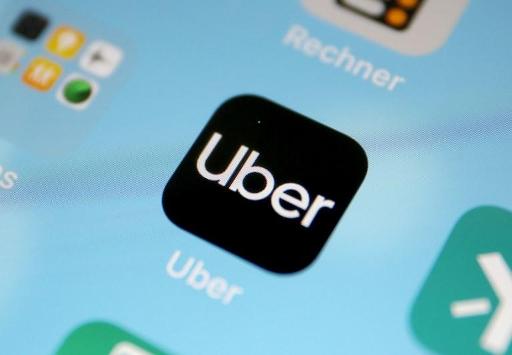A landmark Supreme Court ruling in the UK has declared that Uber drivers there are no longer to be classified as self-employed, but rather as workers entitled to a £10.85 minimum wage, vacation time, and pension rights.
The decision makes the UK the first country in the world to successfully demand that Uber give its drivers these basic labour rights, according to De Standaard.
The ruling affects over 70,000 UK drivers for the American-based corporate giant, which has faced strong criticism in Belgium for its employment practices that leave 2,000 drivers in Brussels without these same rights.
After five years of opposition and appeals to the changes, Uber is now calling the Supreme Court decision an “important day” for British drivers - with the caveat that UberEats couriers will remain self-employed.
Critics point out that the ruling doesn’t give Uber drivers the full and complete rights that a traditional “permanent employee” gets, but instead places their status somewhere in between that and self-employed, in a category known as “worker” in the UK.
Because no such category exists in other European countries that have similar issues with the American company’s labour practices, like Belgium, the only option in those countries would be for Uber to reclassify its self-employed drivers as regular employees, which would mean even more labour rights (such as parental leave, for example) than the British ones now have.
Another criticism is that the minimum wage only applies to the time spent actively driving people to their destinations, not time spent looking for fares, which accounts for almost a third of the hours that drivers spend behind the wheel, a previous study from the University of California Berkeley found.
“Being classified as a worker is not an end in itself,” tweeted Alan Bog, a professor of employment law at the University of Bristol, indicating that Uber’s compliance with the ruling remains to be seen. “The relevant question is - are the legal rights enforced in the real world in accordance with the law’s demands?”
While CEO Dara Khosrowshahi announced late last night that Uber wants to “turn the page on labour rights,” James Farrar and Yaseen Aslam, who filed the initial lawsuit against Uber five years ago (which the American company continuously fought through multiple appeals), said that “Uber's offer is a day late and a dollar short.”
Uber’s existing labour rights and working conditions are “the worst in a hundred years,” according to CEO Jitse Groen, CEO of the Dutch company Takeaway.
Related News
- Brussels residents sign petition to keep Uber operating in the capital
- 'One fine and we'll shut down Brussels'; Uber drivers rally against smartphone ban
Uber traditionally classifies its drivers as self-employed contractors, a designation that affects taxation, work hours, and overtime benefits, which opponents say is out of step with progressive European employment practices.
Brussels Minister-President Rudi Vervoort called the system “reprehensible,” and added that the competition introduced by Uber is unsustainable in the long run for existing taxi and limousine services in the capital.
A recent ban on the use of smartphones to solicit fares was intended to prevent the American technology company from continuing to work in the Belgian capital. Proponents argue that Uber’s work model – in which its employees are left without any benefits, guaranteed wages, or protections against market saturation – is unethical and antithetical to Belgian standards for employers.
Uber, whose revenue was estimated at US$14 billion in 2019, has been taken to court a number of times in multiple countries over its treatment of drivers. A 2019 lawsuit in the US ordered the company to pay US$650 million in overdue unemployment and disability insurance taxes.
London is the main European market for Uber, which is also active in countries in Latin America, Asia, Africa, and the Middle East.
The Supreme Court verdict comes after a groundbreaking ruling in February that said Uber drivers were not truly self-employed because they don’t have control over fares or customer interactions.
In fact, drivers have “little or no opportunity to improve their economic position through their professional or entrepreneurial skills,” the verdict read in part.
The ruling could potentially have an impact on other companies in the gig economy, like Deliveroo.
The European Commission has already begun discussing a possible adjustment of the status of platform workers.

